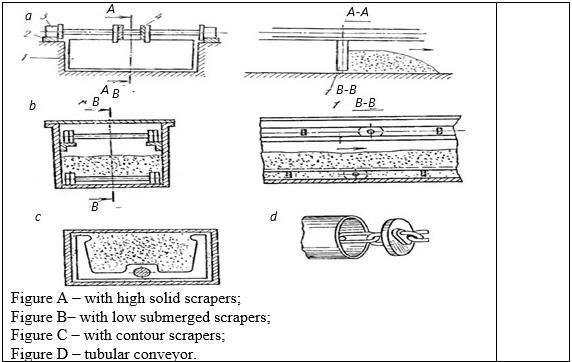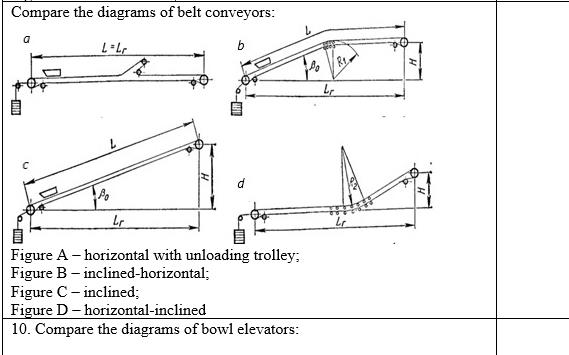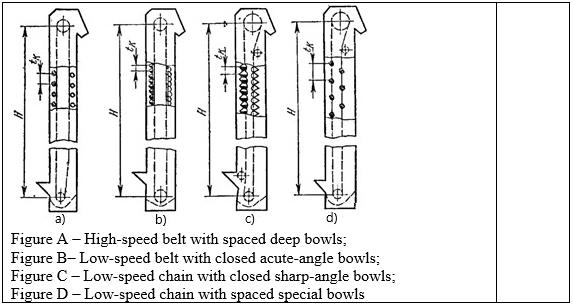Abstract
Nowadays the professional training of future engineering personnel for the domestic marine industry is aimed at training and forming competent specialists who are ready for effective professional activity and competitive in the modern labor market. Graduates of a higher educational institution must have a set of professional competencies that will allow competent, efficient and effective performance of the functional duties. Achieving this level of professional training is possible not only through productive training, but also through the organization of high-quality current, intermediate and final control of students ' knowledge and formed competencies. To do this, university teachers use existing and new qualimetric methods that allow assessing the level of formation of professional competencies. The subject of the study is the professional training of students of the maritime university. This paper is devoted to the justification of the use of the testing method to check the level of formation of professional competence of PC-2. The paper describes the content of the methodology for measuring the formation of professional competence of PC-2. The results of experimental work are presented, which allow checking the reliability and validity of the developed methodology.
Keywords: future marine specialist, diagnostics, student of a marine university, professional competence, professional training, test,
Introduction
The process of professional training of future specialists in maritime industry, along with the modernization of professional training and improvement of the quality of teaching academic disciplines, requires the increase in the personal responsibility of students for the effectiveness of mastering new knowledge and the formation of professional competencies.
The analysis of the pedagogical practice of a maritime university shows that the most important direction of modernization of modern vocational education is the transition to competence-based training of future specialists. The Federal Law “On Education in the Russian Federation” is also based on this. It defines that “vocational education is a type of education that is aimed to give students basic professional educational programs of knowledge, skills and the formation of competence of a certain level and volume that allow carrying out professional activities in a certain area and (or) perform work in a specific profession or specialty.
Consequently, the formation of necessary competencies of university graduates is the core task of the professional training of future engineers.
Well-known Russian scientists (Aronov & Znamenskaya, 2010; Tkacheva, 2010; Shchedrovitsky, 2003) characterize the concept of “competence” as an indispensable attribute of a specialist's professionalism, which determines the level of his personal professional responsibility and readiness for high-quality and effective professional activity.
Professional competence is “a cognizable and measurable set of interrelated knowledge, skills and abilities necessary for satisfactory fulfillment of standard requirements and solutions to typical problem situations in a specified professional area” (Tuber, 2012).
As a result, during the process of professional training of future specialists in the maritime industry in a higher educational institution, students must master a set of professional competencies, which will give them the opportunity to become real competent professionals in demand in the labor market and conscientiously performing their functional duties in any ship-owning company.
In order to assess the formation of professional competence or a separate competence in the practice of professional training of students of a maritime university, the testing method is actively and creatively used (Kondratyev, Boran-Keshishyan & Tomilin, 2019). Testing the level of professional competence of graduates of maritime educational organizations is one of the modern, powerful, reliable and objective methods of monitoring the level of their knowledge and readiness for future professional activities (Kondratyev et al., 2019).
Taking into account these aspects, it is necessary to note that the use of the testing method to assess the formed competence in the practice of professional training is possible and advisable.
Problem Statement
The implementation of the requirements of the Federal Law “On Education in the Russian Federation” and the Federal State Educational Standard of Higher Education for the specialty 03.03.03 Operation of transport and technological machines and complexes (Educational program "Operation of transshipment equipment of ports and transport terminals”) require each graduate to be formed as a competent professional, ready for future professional activities. For this, in the process of studying at a maritime university and professional training, future graduates develop a complex of professional competencies, including the competencies of PC-2, PC-6, PC-8 and PC-9.
Checking the level of readiness of each student studying the discipline “Continuous transport vehicles” requires the use of the testing method and determination of the level of formation of each professional competence.
The study of diagnostic literature related to measuring the formation of a specific professional competence PC-2 “The ability to carry out information search by individual units and systems of objects of study” among students of a maritime university, future engineers in the field of lifting and transport vehicles and complexes showed that such a method does not exist. This circumstance motivated the author to develop the necessary method.
Research Questions
Today the labor market places high demands on the professional training and competence of graduates of higher education institutions. The personal attitude of each student to the acquisition of new knowledge and personal high responsibility for mastering the educational material become extremely important. The key task of university teachers in the formation and development of the personal responsibility of each student of a higher professional school is not only their support and motivation, but also the systematization of control and verification of knowledge and competencies (Aronov, 2010). It is possible to solve this problem using individual surveys at each lesson. However, this form is not very effective due to the fact that it allows only a few people to be covered by this form of verification.
Practice shows that the most effective is the use of a testing method, namely mini-testing. During any lesson, a teacher can always allocate 10 minutes for consultation and test all students. This will allow: a) controlling all students; b) finding out the level of professional readiness of each student; c) identifying the gaps in the knowledge of each student; d) raising the responsibility of a student for the effectiveness of his studies.
Consequently, each teacher needs to focus the efforts on the development of diagnostic tools to check the level of knowledge, competence, the formation and development of personal responsibility for the results of their studies. The proposed methodology for the assessment of the formation of professional competence PC-2 among students of a maritime university is an important component of the diagnostic tools of a teacher.
At the same time, the knowledge of each student that the control of the formed knowledge and competencies has a systematic character will allow all students of a university to focus on: a) a balanced, serious approach to independent training and professional study; b) development of self-education and self-improvement; c) self-control of the level of their professional knowledge; d) development of personal responsibility for the effectiveness of their professional training.
Purpose of the Study
The purpose of the methodology is to determine the level of formation of professional competence PC-2 among the students of a maritime university. The methodology contains a mini-test, which includes 10 test items with four offered answer options. The answers of the subjects will allow determining the reliable level of formation of the professional competence of PC-2.
Instruction.
Dear student! To check the level of formation of your professional competence PC-2, we ask you to answer the questions of this test. Carefully study each test task, select the correct answer and put the letter or letters in the column “Answer”.
You have 10 minutes to think over and answer.



The assessment of the formation of the professional competence of PC-2 is based on the points scored:
- “Poor” – 1-3 points;
- “Satisfactory” – 4-6 points;
- “Good” – 7-8 points;
- “Excellent” – 9-10 points;
High scores of the mini-test confirms the formation of the professional competence PC-2 “The ability to carry out information search on individual units and systems of objects of study” of students of a maritime university, their desire and willingness to work in chosen profession in maritime industry and the desire to grow as a specialist in the future.
Low scores of the mini-test indicate that the professional competence of PC-2 “Ability to carry out information search by individual units and systems of objects of study” is not formed. It shows the indifference to future professional activities and unwillingness to be a specialist in the maritime field of activity, their desire to change profession.
Research Methods
The experimental and control groups were formed to determine the level of formation of PC-2 “The ability to carry out information search on individual units and systems of objects of research” and to confirm the effectiveness of the applied methodology. The first group (control) consisted of 25 students of the third year, the second (experimental) group included 22 students of the final fifth year. In total, the experiment involved 47 students with theoretical training in the course “Continuous transport vehicles”.
After careful instruction, the students were asked to answer the mini-test questions.
Third-year students did not know about the upcoming testing. The final testing was carried out in the process of planned professional training, after completing the study of the discipline, directly at the test.
Findings
The results of testing the students of the control group are shown in Table 3.
The students of the experimental group were timely informed of the upcoming testing. They were given three days to prepare. The results of testing the students of the experimental group are presented in Table 4.
According to the test results, the respondents were ranked and one of the criteria related to the discriminative indicator was used to evaluate the test. This approach is based on the analysis of the results of individual test questions in order to differentiate students with respect to “high” or “low” results of the questionnaire test.
In order to check the effectiveness of the developed methodology and confirm the reliability of the research results, we used one of the statistical methods for processing the results - Student's t-test. This statistical research method allows comparing the results for “low (less than 7 points)” and “high (not less than 7 points)” parameters in two different samples, experimental and control groups. Since at the reported stage of the experimental work, the indicators for the level of formation of PC-2 competence according to the Student's t-test differed, further comparison of the changes in indicators in the experimental and control groups was also carried out to study the dynamics of the changes obtained in these groups.
Calculating a value is carried out according to the formula: , where – the average of all differences between variable X (at the reporting stage of work in each group) and variable Y (at the controlling stage of work in each group); – standard deviation. Comparing the value tcrit, obtained at significance level = 0,05 and temp we obtain that according to the decision-making rule foremp >tcrit (6,9 >4,97) for Student's t-test, the result provides sufficient grounds for rejecting the null hypothesis, that is, in the control and experimental groups, the results at the recording and controlling stages differ significantly in terms of the level of forcing the competence of PC-2. The use of this criterion also allows drawing a conclusion on the difference between the results in the experimental and control groups at the control stage of the work. Thus, the application of the testing methodology for individual sections of the discipline “Continuous transport machines” in the experimental group showed that its use is appropriate.
Moreover, the experts preliminarily checked the test items for validity and reliability. The validity of the questionnaire test was assessed by the correlation of the characteristics of the measurement results with such criteria as the assessment of experts during the analysis of the content of the test questions and its adequacy to the set goals (meaningful validity) and the results for other tests (constructive validity). This rather high correlation obtained between the surveyed results of the respondents and external criteria confirms the high validity of the questionnaire test.
Conclusion
The results obtained during the experimental work allowed determining the main provisions of the process of the formation of PC-2 competence “The ability to carry out information survey by individual units and systems of objects of study”, drawing appropriate conclusions, as well as developing methodological recommendations for the preparation of test tasks for the discipline “Continuous transport vehicles” for university teachers. The study to test the performance of the methodology for the assessment of PC-2 formation among the students of a maritime university studying the discipline “Continuous transport vehicles” allowed confirming that this method was working. It also showed that each future engineer of a maritime industry was responsible for the level of his professional training and willingness to work effectively at enterprises and institutions of maritime transport.
Statistical testing confirmed its reliability and validity.
References
Aronov, A. M., & Znamenskaya, O. V. (2010). On the concept of mathematical competence. Bulletin of Moscow University, 4, 31-42.
Kondratyev, S. I., Boran-Keshishyan, A. L., & Tomilin, A. N. (2019a). Conceptual foundations for the development of a bank of test tasks for the state final certification of graduates of maritime educational organizations. Marine Intelligent Systems, 1-2(43), 142-149.
Kondratyev, S. I., Boran-Keshishyan, A. L., Tomilin, A. N., & Heckert, E. V. (2019b). Development of a bank of test tasks for the state final certification of graduates of maritime educational organizations. Marine Intelligent Systems, 1-2(43), 149-156.
Shchedrovitsky, P. G. (2003). Communicative and reflexive competence in the framework of the thought-activity approach: the contours of a new understanding. In the book: Pedagogy of development: key competencies and their formation, 56-61.
Tkacheva, T. M. (2010). Professional competence of an engineer: from a school graduate to a specialist. Agroengineering, 3, 53-56.
Tuber, I. I. (2012). Competence approach to training in the system of secondary vocational education. https://elar.urfu.ru/bitstream/10995/50590/1/978-5-8019-0294-4_2012_134.pdf
Copyright information

This work is licensed under a Creative Commons Attribution-NonCommercial-NoDerivatives 4.0 International License.
About this article
Publication Date
31 March 2022
Article Doi
eBook ISBN
978-1-80296-124-9
Publisher
European Publisher
Volume
125
Print ISBN (optional)
-
Edition Number
1st Edition
Pages
1-1329
Subjects
Freedom, philosophy, civilization, media, communication, information age, globalization
Cite this article as:
Dorofeev, E. M. (2022). Responsibility Of Future Marine Engineers For Their Professional Training Results. In I. Savchenko (Ed.), Freedom and Responsibility in Pivotal Times, vol 125. European Proceedings of Social and Behavioural Sciences (pp. 294-302). European Publisher. https://doi.org/10.15405/epsbs.2022.03.36

